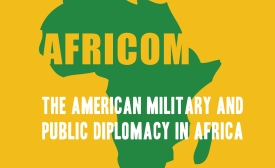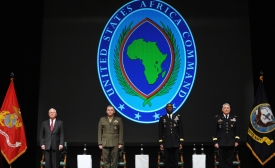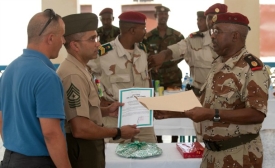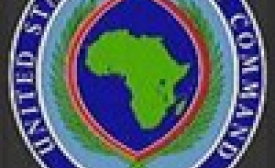Africa

The Cultural Diplomacy in Africa Forum Presents a One-Day Conference on Global Integration, Demographic Change and the Challenges Facing an Increasingly Interdependent World

Reflections on early lessons of AFRICOM's public diplomacy.

The Defense and State departments cite public diplomacy as an essential element of AFRICOM. But can and should the U.S. military engage in public diplomacy?


The USC Center on Public Diplomacy at the Annenberg School and the USC Center for International Studies were pleased to host a conference entitled, AFRICOM: The American Military and Public Diplomacy in Africa. The first of a series of conferences on public diplomacy, this conference was held on Thursday, February 7 and Friday, February 8, 2008 at the University of Southern California in Los Angeles.

The USC Center on Public Diplomacy at the Annenberg School and the USC Center for International Studies were pleased to host a conference entitled, AFRICOM: The American Military and Public Diplomacy in Africa. The first of a series of conferences on public diplomacy, this conference was held on Thursday, February 7 and Friday, February 8, 2008 at the University of Southern California in Los Angeles.
USC Center on Public Diplomacy Research Associate Gbemisola Olujobi sheds light on one of the pejorative images that has come to define Africa in the eyes of many around the world.
Corruption goes by many names in Africa -- "kola," "egunje," "maslaha," "kompo," "kitu-kidogo," "tikoko," "toshiyar-baki," "sweetener," etc. Everyone recognizes it as a gangrenous evil. Sometimes, however, the line between wrongdoing and the done thing tends to be...a little fuzzy.







